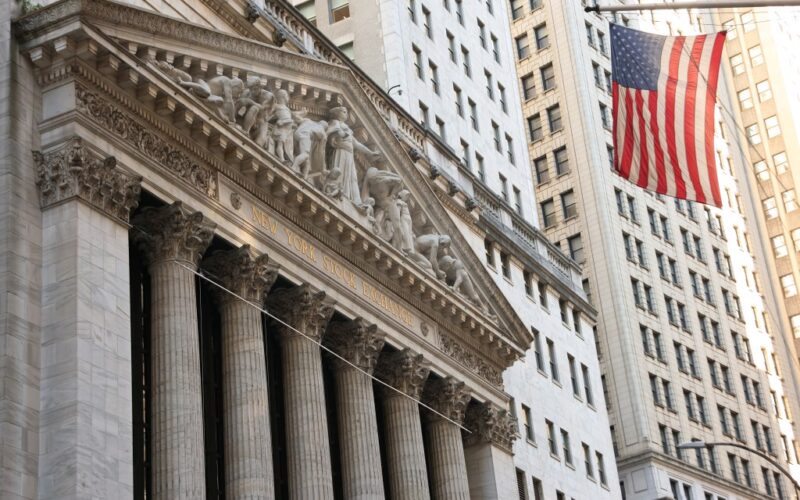Diversity, equity, and inclusion has faced its greatest threats yet since Donald Trump promised a “society that is color-blind and merit-based” in his inauguration this January. Across town, in the church that held the funerals of Frederick Douglass and Rosa Parks, members of the National Action Network and I made a vow to fight for the billions of dollars promised to us after our parents, grandparents, and great grandparents couldn’t even jump to grab the brass ring.
We promised that day to march on Wall Street and continue the work of Dr. Martin Luther King Jr. in the final months of his life, when he led boycotts across the nation of companies that were glad to take Black dollars but refused to put them back into us. That’s why we will lead thousands down Broadway today, from the African Burial Ground to the heart of the Financial District, to remind corporate America that the bill has come due.
If Wall Street wants to listen to Truth Social posts from Donald Trump, they will certainly have to face us as we march down Broadway. We will step on the ground once traversed by slaves, who more than 300 years ago were sold along Wall St. at Water St. We will march through a neighborhood where, barely 150 years ago, banking houses profited heavily from Southern plantations fueled by slave labor. We will pass the executives who will continue to compete for those $1.7 trillion we will hold.
The longer we go without serving as a check to Donald Trump, the more he will simply abuse the power of his office. I warned as much this Sunday, during a sermon at Howard University as the National Guard patrolled the streets of Washington, as Trump continues to threaten taking over Black-led cities with low crime rates.
The March on Wall Street will send a message to the thousands of companies that promised a staggering $340 billion toward DEI programs in the 2½ years immediately after the murder of George Floyd. They promised to do better, invest in programs that put Black Americans in the C-Suites and some of their revenue back into the streets. We saw clear programs to do more business with Black vendors, set up scholarship programs, and end the unspoken but often felt segregation in corporate America.
Flash forward to today, when many of those companies have made it clear they were simply following the political headwinds. Even before Trump hovered his hand over the Bible this January, they began to walk back on those promises out of fear of the president. He has bullied companies into aligning with their agenda. His FCC recently forced a pledge to not start a DEI program as part of an $8 billion merger. His administration is locked in a legal battle over attempts to withhold funds from schools with DEI programs.
Corporate America, which has always been guided by what’s good for business and where the market is going, should remember the business value they saw in DEI five years ago. Black Americans’ buying power is expected to reach $1.7 trillion by 2030, which for context is the targeted GDP for Saudi Arabia by the end of the decade. Black women have been the leading group of entrepreneurs starting new businesses since the pandemic. Jamie Dimon, the CEO of JPMorgan Chase whom I have met with on DEI and other issues, have said these policies are good for business.
Those who have stood with Black America have seen these benefits while others kowtow to pressure from Trump, Bill Ackman, and anti-DEI crusaders. Costco’s shareholders overwhelmingly shot down a bid to wipe its DEI efforts from its governance, with leadership committed to the benefits of these investments. Black America in turn stood with them and the company has thrived.
And we are doing this with a large coalition at greater threat to the loss of DEI. Latino organizations, organized labor, and clergy have joined this march to stand alongside this coalition because they recognize the stakes. If we sit on our hands while corporate America reneges on its pledges to Black and Brown America, what is to stop them from chipping away at the union rights that leaders like A. Phillip Randolph fought for?
Simply nothing.
If they don’t want to be in with Black America, we will make sure their bottom line is in the red.
Sharpton is founder and president of the National Action Network.








